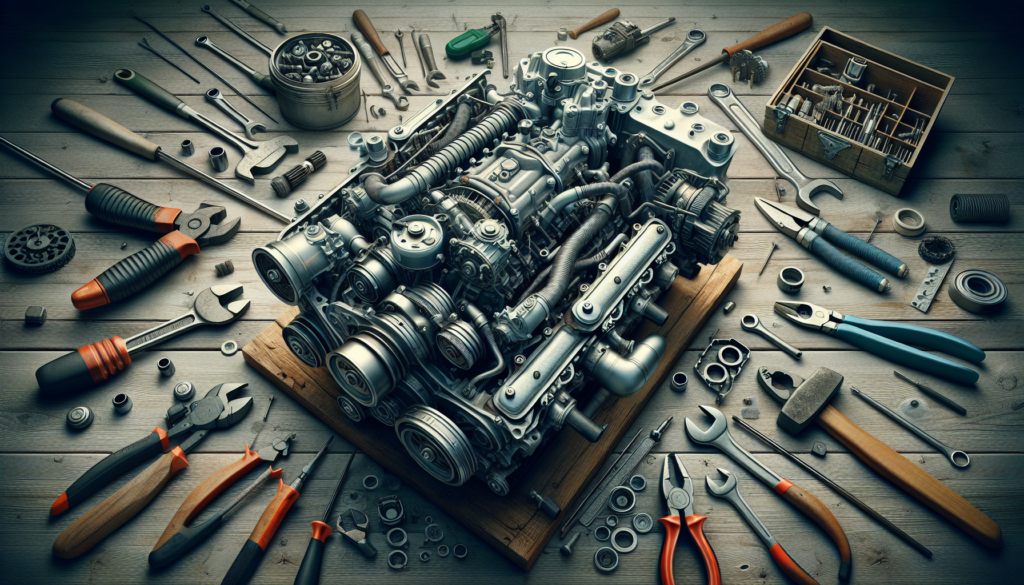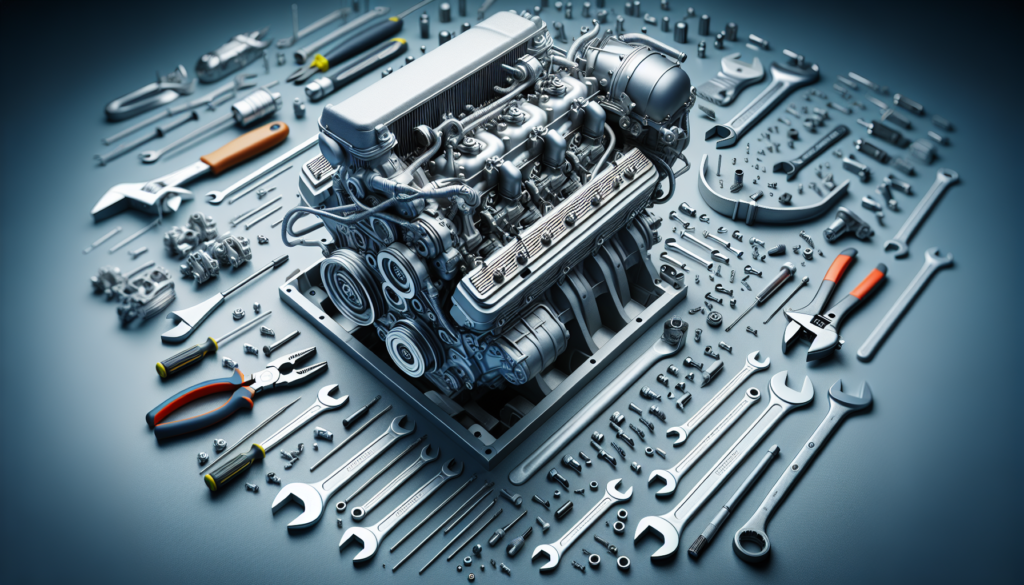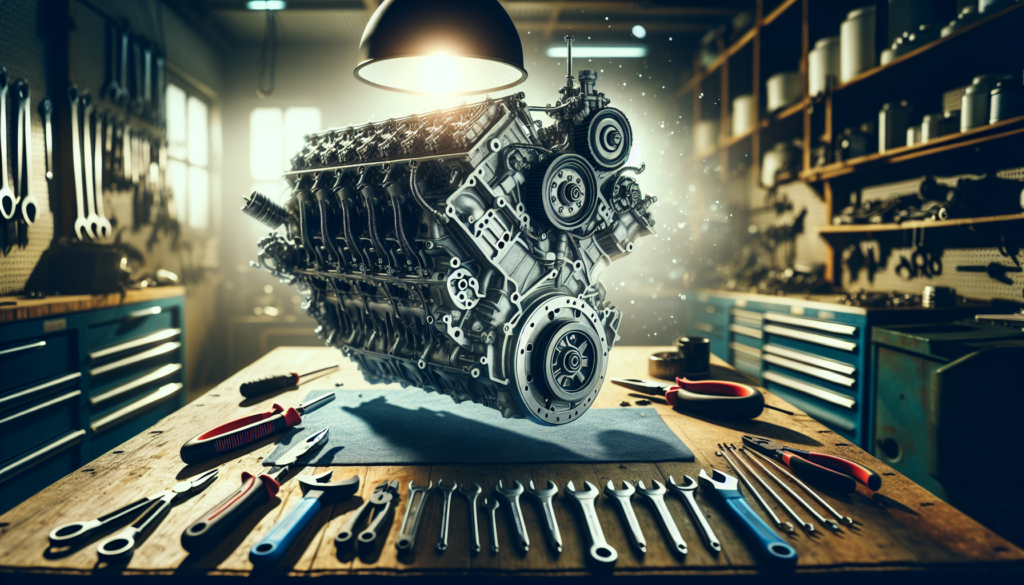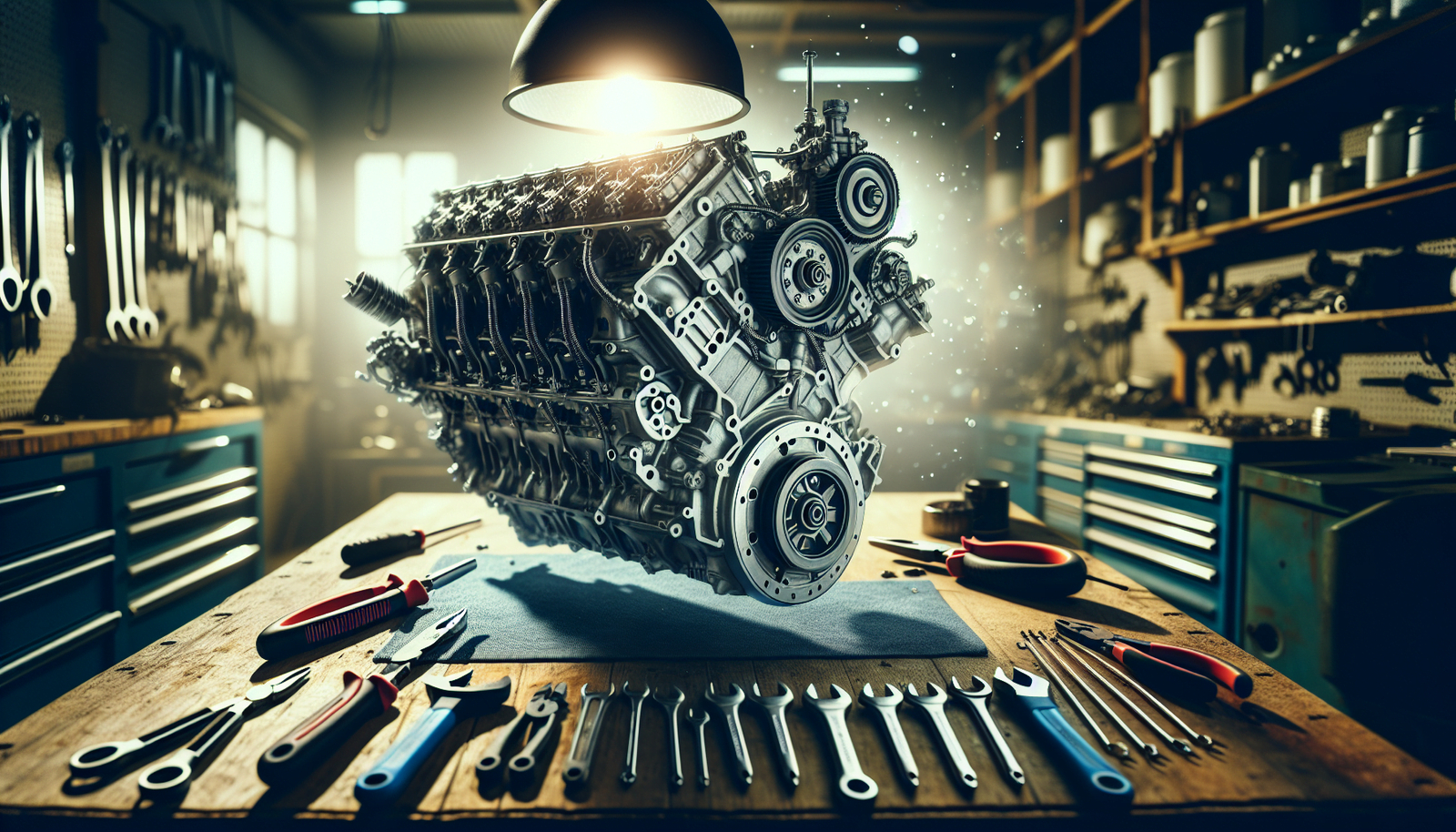Navigating your vessel through the serene waters can quickly turn into a stressful ordeal with a minor hiccup in your boat engine. In this informative guide titled “Common Boat Engine Problems and How To Fix Them”, you will find detailed insights into a handful of prevalent issues that often plague boat engines. Your understanding of these common problems will be enhanced and you’ll also learn various robust solutions. Not only will this aid in staving off any potential maritime disasters, but it would also increase your practical knowledge, making you self-sufficient. Prepare yourself to become a proficient troubleshooter, keeping your boat engine humming smoothly for many adventures at sea.

Overheating Engine
Hey, have you ever experienced an overheating boat engine? Well, let’s start by discussing how you can identify the symptoms of this pesky problem. You want to keep your eyes open for indicators such as a higher than normal temperature gauge reading, low coolant levels, or a distinct smell of an overheated engine. If you notice any of these, then you’ve got an overheating engine on your hands!
Common causes of engine overheating
There are several reasons why your boat’s engine might be running hot. One possible culprit could be a faulty thermostat, which regulates the engine temperature. If your thermostat is stuck in the closed position, it may prevent coolant from reaching the engine. Another common cause could be low coolant levels. If you don’t have enough coolant, your engine cannot effectively dissipate heat. Clogged radiators and hoses can also lead to overheating as they restrict the flow of coolant.
Steps to troubleshoot and fix an overheating engine
Fixing an overheating engine is not necessarily a Herculean task. You should start by checking the level of coolant in your engine. If it’s low, add more. If your thermostat is faulty, get a new one installed. In cases where the radiator or hoses are clogged, a coolant system flush might do the trick. Always remember, regular maintenance and timely repairs are key to avoiding these issues.
Failed Starter Motor
A boat engine’s starter motor is pretty much what it sounds like: the device that starts your engine. It uses electricity from your boat’s battery to turn on the engine. Now, let’s look at some symptoms of a failing starter motor.
Signs of a failing starter motor
If you’re trying to start your boat but hear a clicking noise without the engine roaring to life, you might be looking at a starter motor issue. Another sign is if the engine starts intermittently, refusing to come alive when you need it to.
Tips to repair or replace a starter motor
Don’t fret if your motor starter is acting up. There are ways to fix it! A simple solution could be tightening up a loose connection. If the problem lies in an internal component of the starter motor, you may need professional help to repair or replace it.
Stalling Engine
A stalling boat engine is incredibly annoying and could also be dangerous. It’s paramount to know the signs before things get out of hand.
Recognising the signs of a stalling boat engine
Struggling to keep a consistent pace? Does your boat engine randomly shut off while running? These are signs that it’s stalling. Watch out for frequent spluttering or if the engine dies when you try to accelerate.
Identifying reasons why your boat engine stalls
Stalling engines often indicate issues with the fuel or ignition systems. It could be from dirty fuel, a clogged fuel filter, or a failing ignition coil, among other causes.
Guidance on fixing a stalling engine
You can begin fixing a stalling engine by replacing the fuel filter if it’s clogged. If the ignition system is to blame, it may be wise to get the ignition coil checked and replaced if necessary. Empower yourself by learning these basic aspects of boat maintenance!
Engine Misfires
Engine misfires are another common boat engine malfunction. It’s not just frustrating; it’s also hard on your engine.
Typical signs of engine misfires
Engine misfires can manifest as intermittent stumbling or hesitation from your engine. You might even notice a decrease in performance or fuel efficiency.
Common reasons for engine misfire
Engine misfires usually occur because of issues with the spark plugs, but they could also be a result of improper fuel-air mixture or timing issues. It’s important to identify the cause to achieve a suitable fix.
Methods to fix an engine that misfires
If it’s the spark plugs causing trouble, a simple replacement or cleaning might fix misfires. For fuel mix or timing problems, a tune-up or engine timing adjustment may be needed. Remember, regular maintenance helps prevent these issues in the first place.

Engine Won’t Turn Over
When your engine doesn’t turn over, it can cause quite a headache. But with a little knowledge, you can troubleshoot this problem too.
Recognising an engine that won’t turn over
If you try to start your boat and get no response, not even a click from the starter motor, it’s likely the engine isn’t turning over.
Identifying reasons behind an engine not turning over
A dead battery or a bad starting relay are usually responsible for a boat engine that won’t turn over. Other possible causes could be a faulty ignition switch or a corroded wiring connection.
Strategies to fix an engine that won’t turn over
Boosting the battery with a charger or jump starting it will usually get things going if the battery is the issue. In case of faulty components, replacement is usually the best way out.
Oil Leaks in the Engine
Oil leaks tend to make a mess and often spell trouble for boat engines. Here’s how to spot and tackle them.
Spotting signs of engine oil leaks
Look out for puddles of oil under the engine or oil stains on the engine’s exterior. If your engine oil levels are dropping without reason, it might be due to a leak.
Finding the source of oil leaks in the engine
Common places for oil leaks are oil filters, oil drain plugs, and around engine gaskets. Carefully inspect your engine to find the source of the leak.
Steps to fix oil leaks in boat engines
A leaky oil filter or drain plug can be fixed by tightening or replacing them. If the gasket is the culprit, you may need professional assistance to replace it.

Fouled Spark Plugs
Next up are fouled spark plugs, a prevalent issue that can impact your boat’s performance.
Signs and symptoms of fouled spark plugs
Hard starting, poor acceleration, and engine misfires are common symptoms of fouled spark plugs. They can also lead to lower fuel efficiency.
Common causes of spark plug fouling
Spark plugs can foul due to improper spark plug heat range, oil contamination, or prolonged low-speed running.
Guidelines to repair or replace fouled spark plugs
Replacing fouled spark plugs is often the best solution. If fouling happens often, you may want to consult a professional to ascertain the cause and adjust the spark plug heat range or fix the oil contamination issue.
Excessive Vibration From Engine
Excessive engine vibration can be really unsettling. Let’s talk about what could cause this and how to fix it.
Understanding engine vibration problems
Remember, engines will vibrate naturally, but if you’re feeling a jarring, teeth-clattering type of vibration, something’s probably off.
Identifying causes of excessive engine vibration
Excessive engine vibration could be due to engine balance issues or even a bent propeller. Wear and tear of engine mounts can also cause severe vibrations.
Fixing strategies for excessive engine vibration
Balancing your engine or replacing a bent propeller can resolve the shaking. If it’s the engine mounts, you’ll likely need to get new ones installed.

Unusual Engine Noises
Our final common engine problem is abnormal engine noises. They usually scream “Help!” for your engine.
Recognising common abnormal engine noises
Listen to your engine. If you hear knocking, humming, clicking, or hissing sounds, they could be a sign of trouble.
Tracking down the source of unusual engine noises
Knocking sounds often indicate an issue with the engine’s lower parts, while hissing or whistling could suggest a vacuum leak. Squealing may point towards a loose belt.
Techniques to address unusual engine noises
Addressing unusual noises involves identifying the source and fixing it. This could mean tightening a loose belt or fixing a vacuum leak. More serious issues may require professional attention.
Fuel System Issues in Boat Engines
Finally, let’s talk about common fuel system problems in boat engines.
Identifying common fuel system problems
Signs of fuel system issues include hard starting, poor performance, and mysterious engine cutoffs. You may also notice a decrease in fuel efficiency.
Underlying reasons behind fuel system issues
Common causes of fuel system issues are clogged fuel filters, water in the fuel, or issues with the fuel pump.
Practical solutions to fix boat engine fuel system issues
Changing a clogged fuel filter, draining water from the fuel, or replacing a faulty fuel pump can remedy most fuel system issues. Regular maintenance and keeping your fuel system clean will help avoid these problems.
There you have it! You’re now primed to handle most common boat engine issues. But remember, while it’s good to know how to tackle these, sometimes the best solution is a professional’s touch.

